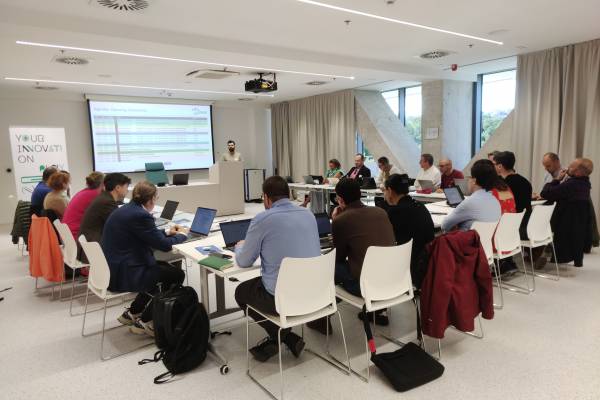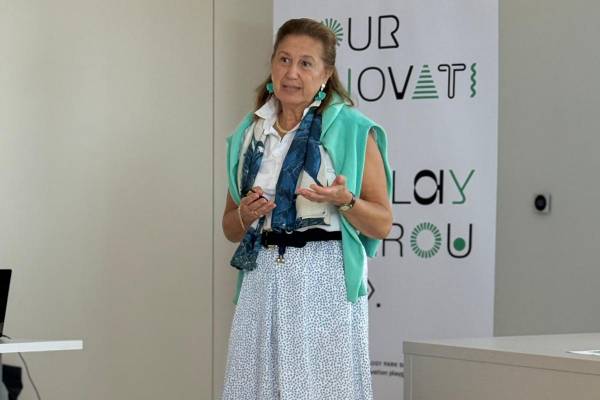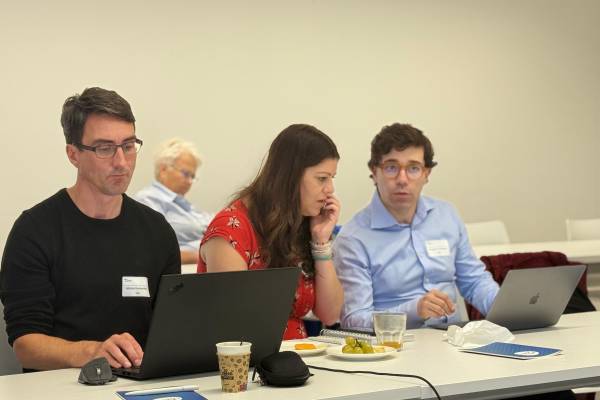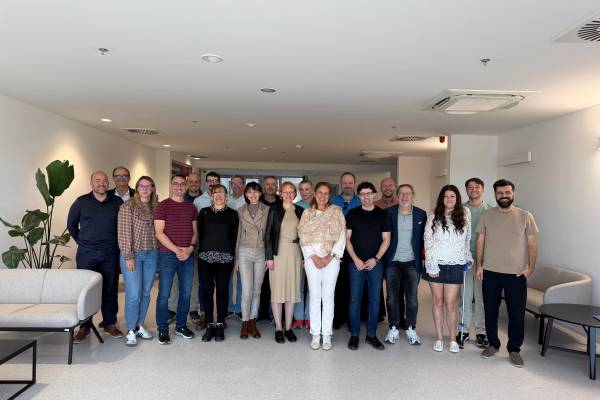AIDAVA partners meet in Split to review progress and define next steps
The sixth AIDAVA General Assembly was held in Split, Croatia, from 6 to 8 October 2025. Hosted in hybrid format by the RISE Research and Innovation Services, the meeting brought together more than 30 participants from partner organisations and the Sustainability Advisory Board, who reviewed progress, exchanged ideas and discussed how AIDAVA’s innovations are shaping the future of data-driven healthcare.
Following a warm welcome from RISE Managing Director Gabrijela Radić and opening words from the technical coordinator Remzi Çelebi (Maastricht University) and the clinical coordinator Isabelle de Zegher (b!loba), the meeting continued with progress updates from all work packages. Since project launch, AIDAVA has delivered 47 of its 69 planned deliverables and achieved six of eleven milestones, underscoring the consortium’s strong implementation record. Partners also reflected on lessons learned from the first prototype evaluation and shared results from ongoing work on data curation, FAIRification, explainability and integration across tools. Clinical partners from Estonia, Austria and the Netherlands presented feedback from patient consultants involved in testing and evaluating the first prototype. Isabelle de Zegher underlined that patient involvement has been central to AIDAVA from the start, helping the team design tools that are not only technically advanced but also practical for use in clinical environments.
These discussions paved the way for the second day, which was structured around parallel workshops. The business workshop explored the concept of Health Data Intermediaries (HDIs) as trusted actors that could help citizens and healthcare providers manage longitudinal health records securely. Partners discussed governance models, sustainability and how AIDAVA’s technology could support the European Health Data Space. In parallel, the technical workshop focused on the integration of novel curation tools, improvements in natural language processing (NLP) for multilingual health data and performance testing of the updated FAIRification and FHIR-based registry services.
The final day brought all teams together to consolidate findings from the workshops and outline next steps. Remzi Çelebi reported that most of the project’s tools have now been integrated into the prototype and that the focus is shifting to system-level testing and validation to ensure smooth interaction across components.
With patient evaluation of Generation 2 planned at three hospital sites in 2026, the consortium will continue to refine its AI-powered data assistant to ensure reliable, explainable and high-quality data curation. The upcoming months will also emphasise interoperability testing and closer alignment with evolving European standards for health data exchange.
The project now moves into its final phase with a clear vision: to turn its technological advances into practical tools that enhance the quality, usability and interoperability of health data across Europe.



